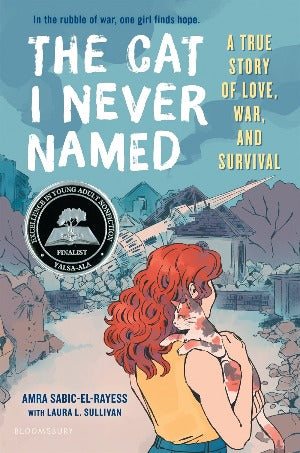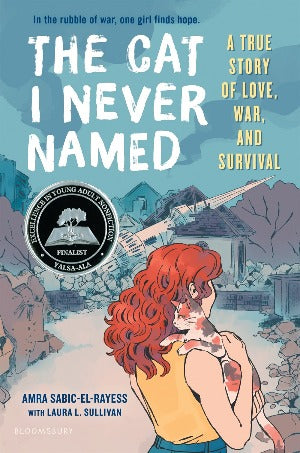Stories Like Me
The Cat I Never Named : A True Story of Love, War, and Survival
The Cat I Never Named : A True Story of Love, War, and Survival
Couldn't load pickup availability
hardcover
Synopsis
The stunning memoir of a Muslim teen struggling to survive the Bosnian genocide--and the stray cat who protected her family through it all.
Amra was a teen in Bihac, Bosnia, when her friend said they couldn’t speak anymore because Amra was Muslim. Then refugees from other cities started arriving, fleeing Serbian persecution. When Serbian tanks rolled into Bihac, the life she knew disappeared—right as a stray cat followed her home. Her family didn’t have the money to keep a pet, but after the cat seemed to save her brother, how could they turn it away? Saving a life one time could be a coincidence, but then it happened again—and Amra and her family wondered just what this cat was.
This is the story of a teen who, even in the brutality of war, never wavered in her determination to obtain education, maintain friendships, and even find a first love—and the cat that provided comfort, and maybe even served as a guardian spirit, in the darkest of times.
Author
Amra Sabic-El-Rayess grew up in Bihac, Bosnia and Herzegovina. Currently she is a professor at Columbia University’s Teachers College working on understanding how and why societies fall apart and what role education can play in rebuilding decimated countries. She is also the author of the critically acclaimed memoir The Cat I Never Named.
Laura L. Sullivan is a former newspaper editor, biologist, social worker, and deputy sheriff who writes because storytelling is the easiest way to do everything in the world. Laura lives on the Florida coast.
praise
"Gripping. . . . Sabic-El-Rayess’s visual imagination is a slipstream. Amra’s words have a subtle, relentless force, creating a world where life is a danger, a demand, and a warm, calico presence." —Foreword Reviews, starred review
"Boldly tackles the rawness of human emotion in times of severe distress. . . . Unforgettable." —Kirkus Reviews, starred review
"An excellent discussion starter." —School Library Connection, starred review
"This fast-paced, touching memoir reminds readers of the significance of the Balkan ethnic war, and places it into a larger conversation about the ways in which ethnically and religiously diverse societies are under threat from extremism and bigotry." —Horn Book
Share


